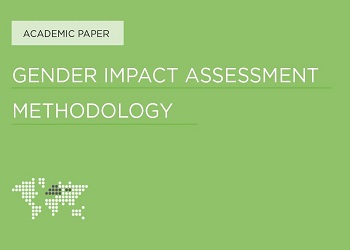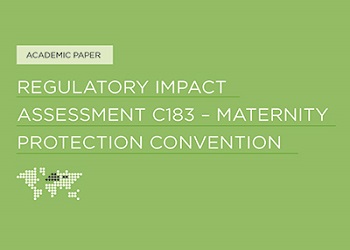- Details
The Gender Impact Assessment (GIA) of the programme Plant the Future was conducted by the ISET Policy Institute (ISET-PI) as part of its collaboration with UN Women within the scope of the project “Regulatory Impact Assessment and Gender Impact Assessment for Women’s Economic Empowerment in Georgia”. This study represents an ex-ante GIA of the programme Plant the Future initiated by the Ministry of Environmental Protection and Agriculture of Georgia (MEPA) and implemented by the Ministry’s Rural Development Agency (RDA). The programme was introduced by the MEPA in 2015 and runs in almost every region of the country. Plant the Future supports the development of nursery and perennial gardens in the regions and currently offers financial support/subsidies for three separate components: (1) perennial gardens; (2) nursery gardens; and (3) the installation of anti-hail systems and/or the arrangement of wells or borehole pumping stations.
- Details
The gender impact assessment (GIA) is an equality tool that helps assess the gendered impact of different policies, programmes and services. It provides technical knowledge to enhance public sector organizations, think tanks and international development organizations to create gender-responsive and equitable programmes. It is a useful evidence-based policymaking tool that aims to achieve the best possible outcome from incorporating a gender dimension into the governance process and increase its efficiency.
This methodology clarifies the concepts underlying the GIA and provides guidelines for its practical use. It is designed to assist government officials, policymakers, practitioners, trainers and the international donor community, as well as others interested in this dynamic and evolving area of incorporating gender issues while planning, implementing, monitoring and/or evaluating any policy, law or draft law, activity or programme. More specifically, this methodology can serve as a reference point to empower policymakers to carry out a GIA of all policies, draft laws, programmes and activities to ensure that prior to their implementation, a thorough analysis is conducted on the potential effects on both women and men, girls and boys respectively.
- Details
The Maternity Protection Convention, 2000 (No. 183), was established by the ILO to promote “equality of all women in the workforce and the health and safety of the mother and child”. The Convention sets minimum standards that need to be implemented in order for pregnant women and working mothers to be adequately protected in the labour market. The Convention has so far been ratified by 38 ILO member countries. Georgia, a member of the ILO since 1993, has not yet ratified the Convention. Even as the Labour Code of Georgia made significant progress over the past decade (e.g. increasing the ceiling on paid maternity leave benefits in 2013 and introducing the paid parental leave concept in 2020), important maternity protection aspects of the law have not yet received proper attention. As a result, even the most recent Georgian labour legislation (adopted in September 2020) still comes short of the standards set by the ILO Maternity Protection Convention. In addition to the Convention’s standards, Georgia has committed to harmonizing and updating its legislation in line with that of the EU within the framework of the 2014 Association Agreement (AA). Among the relevant legislative themes are labour law, anti-discrimination and gender equality, as well as health and safety at work. While this current commitment does not mean that Georgia would be responsible for directly transposing EU legislation into its own legal framework, nor does it set the timeline for updating some of the newer standards, the general principles of the EU labour and social protection law would have to be at least considered by the Georgian legislators.













